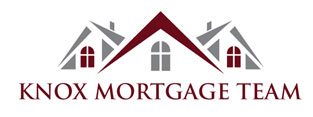Is it better to rent or buy a home? It’s a question that most adults will ask themselves at one point or another. Before deciding which is the best option for you, consider the following factors.
There are several components to consider when deciding whether to rent or buy. Things like your personal situation, taxes, investment opportunities, financial stability and long-term goals all play a role in whether renting or buying is more beneficial.
Rent or Buy: Overall Costs
There are costs associated with purchasing a home such as one-time closing costs, property taxes, and mortgage insurance if your planned downpayment is less than 20 percent. You’ll also need to be prepared to shell out money for unexpected repairs such as a leaky faucet or roof repair. While these costs can seem daunting, rental rates are rising higher and faster than home prices, making purchasing a home a better financial decision in the long run.
Rent or Buy: Taxes and insurance
Part of being a homeowner means paying annual property taxes and homeowners insurance. Rates vary based on your property value as well as the area you live in. Renters often pay rental insurance, though it isn’t required like homeowners insurance is if you’re financing any part of your mortgage. Compare the costs of insurance and taxes to the recurring costs of moving when renting, security deposits and other non-refundable rental deposits.
Rent or Buy: Investment
Buying a home is considered a good investment, especially for younger individuals. As a physical asset, your purchased home will never disappear. For many mortgage programs, each monthly mortgage payment can help to reduce the principal balance owed, so that you are building up home equity. Be sure to talk to your loan advisor about whether you qualify for this type of mortgage program. Additionally, the money you pay toward interest is generally tax deductible come tax season, so don’t forget to discuss this with your tax advisor.
Rent or Buy: Long-term goals
Think about your long-term goals. Real estate has stability in the returns it generates, making it a reliable investment. As an example, you could convert your home into a rental property. If the property is paid in full, a significant portion of the rent could act as income. Or, if a mortgage is still owed, and the rent collected is higher than the mortgage payment, you could generate positive cash flow. Keep in mind that a property, like most investments, are contingent on the future market. If you decide to eventually sell your home, you could potentially have equity in it that could help you upgrade as your family grows as well.
Rent or Buy: Personal situation
Homeownership evokes a sense of personal pride. When you know you will be in a home for many years to come, you take joy in making it your own. Owning a house gives you stability in knowing you and your family will have a place to call home for as long as you’d like.
Rent or Buy: Financial stability and employment
With your career on the upswing and a consistent income, there’s really no better time to buy. Instead of giving money to a landlord every month when rent is due, you’ll be paying off your mortgage and investing in yourself and your future.
When you look at what you would be spending on owning a home vs. renting over a 30-year period, owning can be up to 35 percent cheaper than renting in some regions according to a Trulia study. Not only that, but a home will eventually become an asset that can pay you in the long run.

